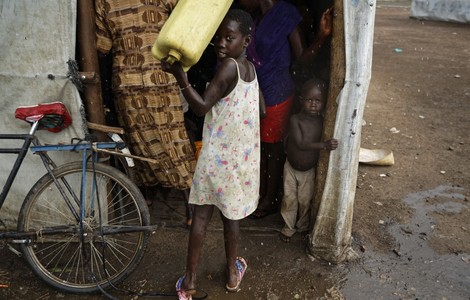Your podcast discovery platform
Curious minds select the most fascinating podcasts from around the world. Discover hand-piqd audio recommendations on your favorite topics.

piqer for: Globalization and politics Global finds
I am an Australian freelance journalist focussing on conflicts, politics, and warzones around the world. I have been working as a journalist for over 5 years, having reported from Australia, Germany, China, Egypt, Palestine, and Ukraine. I am especially interested in the way that new technologies are being used in conflict zones in unexpected and often disturbing ways. During my time working as a journalist, I also co-founded open-source war reporting site Conflict News.
The Internet Is Changing Civil Wars
Historically, war has been the realm of nation states fighting against each other. In recent years, however, the number of civil wars being fought within countries has risen for it to become the dominant kind of armed conflict globally. Non-state actors now routinely threaten large areas of the developing world, causing millions of deaths and tens of millions of refugees.
So what has been driving this trend?
One interesting theory is that our increasing connectivity through the internet is not having the effect of bringing us together. Instead, there is a strong argument to be made that the internet, and its various functions, are tearing nations apart and fueling this growth in civil conflict.
While filter bubbles and tailored news feeds have polarized politics in the West, in many developing countries social media is causing even greater problems. Every piece of incitement has a near-limitless audience, and every call to protest has the potential to go viral. As well, terror groups can now spread their propaganda to a global audience, massively increasing their potential pool of recruits.
Barbara F. Walter's article for The Washington Post breaks down the key findings of an earlier report she authored called The New New Civil Wars. It shows how there are five keys ways in which the internet is responsible for this increase in intra-state violence and how this helps explain why so many of the civil wars which began in the last 15 years have been in Muslim-majority countries. Of course other factors (such as the increasingly severe effects of climate change) could also be responsible for this rise in violence, but nonetheless, the piece provides an interesting perspective on the digital revolution the world is currently experiencing.
And indeed, like most previous revolutions, this digital one will also be violent.
